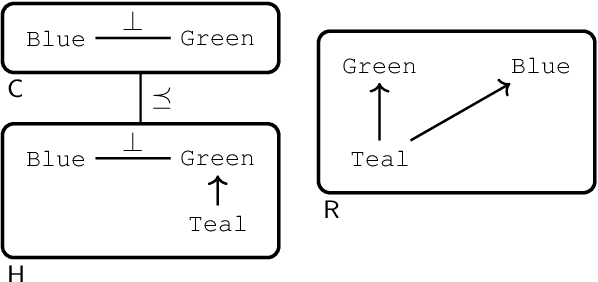Automating Reasoning with Standpoint Logic via Nested Sequents
Paper and Code
May 05, 2022


Standpoint logic is a recently proposed formalism in the context of knowledge integration, which advocates a multi-perspective approach permitting reasoning with a selection of diverse and possibly conflicting standpoints rather than forcing their unification. In this paper, we introduce nested sequent calculi for propositional standpoint logics--proof systems that manipulate trees whose nodes are multisets of formulae--and show how to automate standpoint reasoning by means of non-deterministic proof-search algorithms. To obtain worst-case complexity-optimal proof-search, we introduce a novel technique in the context of nested sequents, referred to as "coloring," which consists of taking a formula as input, guessing a certain coloring of its subformulae, and then running proof-search in a nested sequent calculus on the colored input. Our technique lets us decide the validity of standpoint formulae in CoNP since proof-search only produces a partial proof relative to each permitted coloring of the input. We show how all partial proofs can be fused together to construct a complete proof when the input is valid, and how certain partial proofs can be transformed into a counter-model when the input is invalid. These "certificates" (i.e. proofs and counter-models) serve as explanations of the (in)validity of the input.
 Add to Chrome
Add to Chrome Add to Firefox
Add to Firefox Add to Edge
Add to Edge